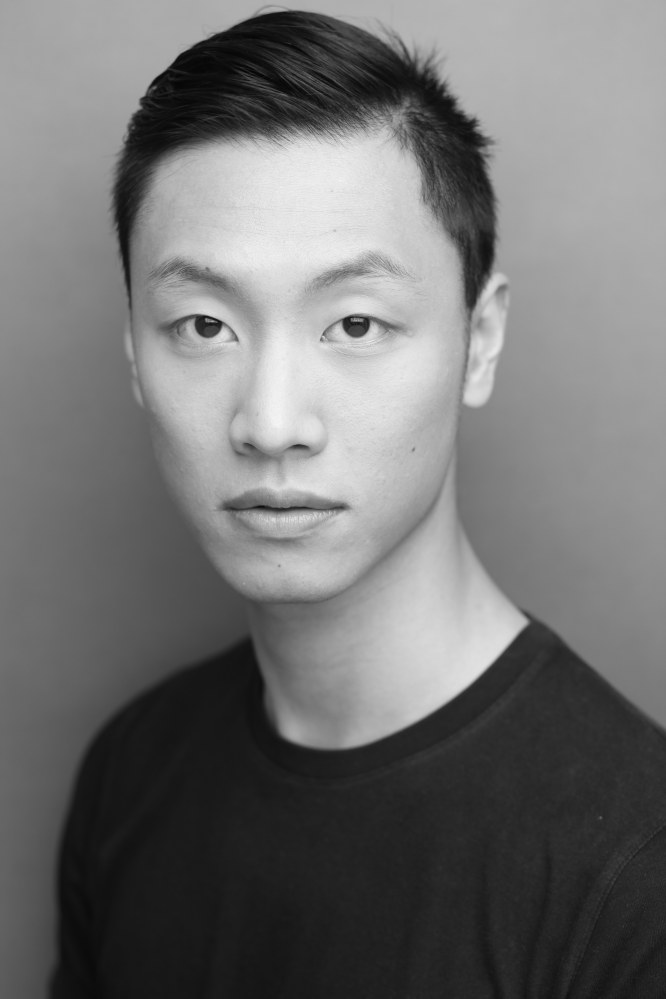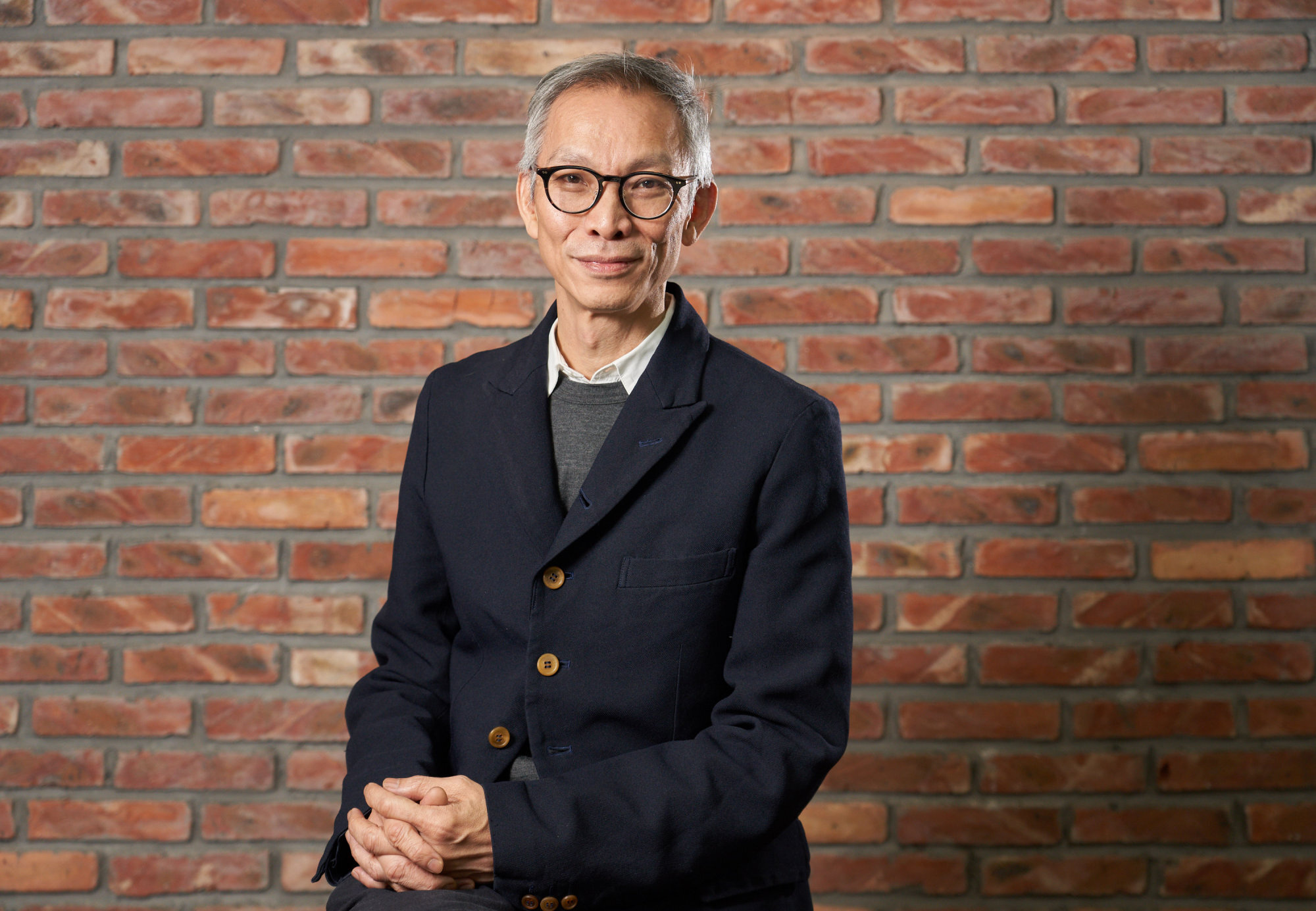
Classic pandemic novel The Plague given Covid-19 treatment in two new productions for Hong Kong Arts Festival
- The modern interpretations of Albert Camus’ classic novel will be shown online, with the English version streamed live by six actors in six countries
- Both versions avoid being critical of governments’ response to the pandemic in mainland China and Hong Kong, respectively, instead marking a positive tone
Chinese stage director Wang Chong enjoys exploring theatre’s “endless possibilities”. So it came as no surprise that he should be the first in China to live-stream a major theatre production online, free of charge, at the peak of the Covid-19 outbreak last April.
Wang’s version of the stage classic Waiting for Godot, written by Samuel Beckett, was presented in Zoom-style split screens and centred on a contemporary couple separated by quarantine. The work resonated with audiences across the country and pulled in 290,000 viewers, a record for the 39-year-old director who is known for his unconventional approach to theatre.
His exploration into the profound impact the coronavirus pandemic has had on human lives will continue in his new work, The Plague, an original commission that will be performed in English in this year’s Hong Kong Arts Festival. Wang says he saw how people in different parts of the world have been coping with the pandemic through casting the six performers for the show online.
“Two actresses from Brazil grumbled about the Brazilian government’s handling of the outbreak in the audition and criticised their president [Jair Bolsonaro]. ” Wang says. “Somebody said in the audition they have been out of work for a year. I saw humanity and politics and how people work very hard to live and steer clear of the pandemic.”

The six selected cast members come from Wuhan in China, Brazil, South Africa, Lebanon, the US and the UK. “During the live performance, we will let the audience see the six performers [in their different] cities and even homes as much as possible, all in real-time,” Wang says.
His piece is an adaptation of British playwright Neil Bartlett’s The Plague, which in turn is based on the literary classic of the same name by French writer Albert Camus.
Theatre producer Penny Pun slams Hong Kong’s culture of ableism
To promote cross-cultural exchange and dialogue, the Hong Kong Arts Festival commissioned and produced two versions of the same play: one in English (directed by Wang) and one in Cantonese, to be directed by Hong Kong director James Chan Tai-yin.
Working independently, Wang and Chan handled the script by Bartlett differently, with the Beijing-based director adopting the approach he took with his production of Waiting for Godot, while Chan will record a live performance in a studio before streaming an edited version of it online.
The story for both versions is about how different characters – including a doctor, a reporter and a businessman – cope with a pandemic spread by rodents. Their varying reactions show human weakness and strength in the face of pestilence. Both works contain references to the current Covid-19 outbreak.

Forming the cast for the English version are Forbes Masson (from the UK) , Simpho Mathenjwa (South Africa) , Karine Teles (Brazil) , Hashem Adnan (Lebanon) , Sydney Zhao (China) and Henri Emond (US) .
The production was not originally planned to refer to the coronavirus pandemic. Hong Kong Arts Festival associate programme director So Kwok-wan says he had the idea of bringing the Bartlett version of The Plague to Hong Kong back in 2018, a year after it premiered in London. He says the play’s themes are both timeless and universal. “Camus’ idea of how a plague changes the fate of a society and exposes humanity’s contradictions strikes a chord with an audience at all times.”
Chan says the plague is a metaphor used by Camus to illustrate how catastrophe is always waiting to happen. “Even if there’s no pandemic, you’ll have other problems such as extreme polarisation in the world and confrontations between governments,” he says. “The original story shows how everybody always uses their own logic and standards to interpret things, and a collective consensus is impossible. The world is just like that.”

Wang says that while Camus’ The Plague is a prophecy that has come true, his version should not be taken as an account or critique of what happened in China during the pandemic. He adds that his work does not specifically target a mainland Chinese audience, who will be able to visit the Hong Kong Arts Festival website to watch the play without using a virtual private network (VPN).
He says it is hard for citizens in China to see the full picture of the pandemic. “There’s a uniform narrative on the mainland [about the pandemic] being a victory resulting from the resilience of the medical personnel. It’s a highly controlled and edited version of reality.”
While Wang says he is critical of the propaganda approach taken in Chinese documentaries on the pandemic, he explains that his version strikes an overall positive note, instead of an accusing one.
“In January last year when I was preparing for the play, the pandemic broke out in Wuhan. My initial emotion was one of anger and I wanted to show that in the play,” Wang recalls. “But a year later, my emotion has changed to one of calmness and as the pandemic spread to the rest of the world I started to look at [what happened] from a broader perspective.”

Wang founded Beijing-based theatre troupe Théatre du Rêve Expérimental in 2008 and he has been behind the China premieres of many Western plays including The Vagina Monologues (2009) and Hamletmachine (2010). In 2012, he started the New Wave Theatre Movement inspired by French New Wave cinema that advocates mixing filmmaking with theatre.
His Thunderstorm 2.0 (2012), adapted from a 1930s play by Chinese dramatist Cao Yu, was described by Chinese media as a movie shot live in a theatre. All 10 actors doubled as camera operators, capturing the action on stage and incorporating their live footage into the performance itself. Wang’s later works The Flowers on the Sea 2.0 (2012) and Ghosts 2.0 (2014) also used this approach.
Wang says combining live video and theatre “is an act of exploring the boundary of the medium and the relationship between reality and illusion”. The closing of theatre venues and the shift of stage performances to online due to Covid-19 has further pushed the boundaries of theatre as a medium, he adds.

“The online showing of Waiting for Godot and [the English version of] The Plague has redefined what a live show means,” he says. “Under the pandemic, a new space has appeared. Whether you call it online or cyberspace, it has become humanity’s new situation, new space.”
A live theatre show now involves virtual attendance, Wang adds. “So where is the live show held? What does a live show mean now? To me, this is a redefined concept of time and space in the Zoom era.”

With more than 120 shows from its 2020 edition cancelled in February and March last year due to the pandemic, the annual Hong Kong Arts Festival decided to move most of its physical performances online this year.
The Cantonese version of The Plague, for instance, was pre-recorded in a studio and the final edit will be streamed online. So far the festival has pre-recorded 17 films of opera, dance and drama.
“It is a challenge to use a cinematic lens to show live arts performances,” So says. “Most of them will be shown free of charge. We hope they will have an overwhelming response from the public.”

Hong Kong’s theatre-going public loves live performances, says Chan, the director of the Cantonese version of The Plague, so stage designs will be retained as much as possible.
“Before the pandemic, the Hong Kong theatre world had never explored using such a cinematic approach to stage a play. So it is a new format for us.”
With new Covid-19 cases reported every day in Hong Kong and the city still battling to keep the pandemic under control, Chan says his production of The Plague will include scenes reminiscent of the government’s daily press briefings.
Like Wang, Chan says his version of The Plague is not critical of the local government’s response to the outbreak. “We don’t need art to complain about the government,” he says. “The role of art is to reflect humanity.”
The Plague (English version), HK$120, will stream on the Hong Kong Arts Festival website at 9pm from March 19 to 21, March 24 to 28. Dates and ticketing details for The Plague (Cantonese version) are to be announced.

